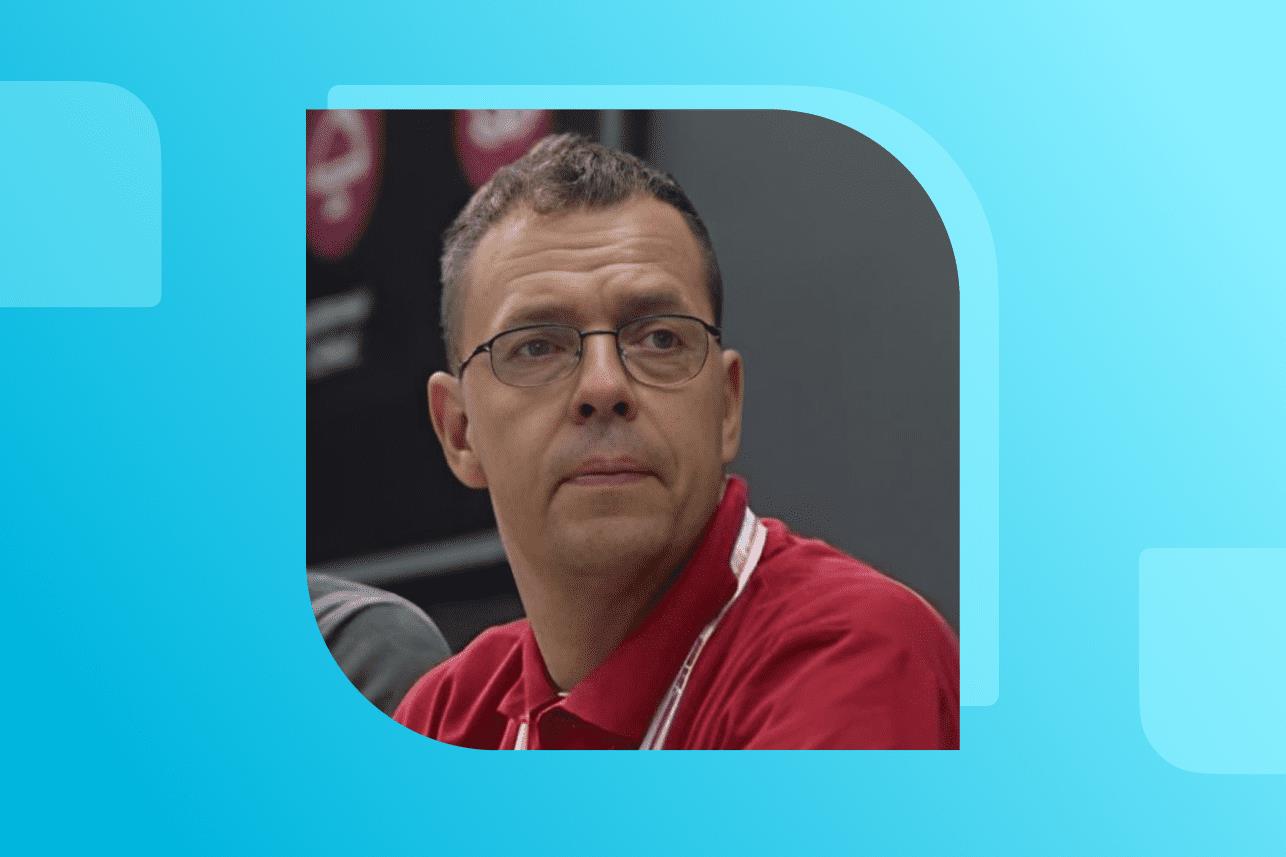Nazarii Romankiv joined the EPAM Campus internal lab at 18, completed his studies, and got his first position on the project. Within three years, he advanced to become a lead specialist, headed the program for beginners, and developed a crash course for newcomers from North America. This year, he attained the Solution Architect level. Let's find out firsthand what contributed to his rapid growth.
What was it like studying at EPAM Campus?
When I was in the tenth grade, I decided to connect my future with IT. After researching my educational options, I enrolled in Kharkiv National University of Radio Electronics to study Computer Science. Looking back, I am confident that it was the right choice. My education provided me with a strong foundation of knowledge. At 17, I had an interview with a company, though they rejected me because I was underage. Fortunately, I later got into EPAM Campus on the Front-End development program.
We routinely visited the office throughout that period because the training was offline. The atmosphere was incredible with everyone interacting, encouraging, and supporting one another. Having someone to help you grow professionally is crucial. Our mentors were seasoned engineers who shared their expertise and delivered interesting lectures. Gaining practical experience is also an essential part of the training. We tackled hands-on tasks, including developing a time management application.
Bumps and milestones on the professional path
Juggling work and study was quite a challenge. I had to manage my time effectively to get everything done. There were days when, after my lab sessions, I would spend additional hours studying advanced mathematics and probability theory. My classmates were somewhat skeptical that my studies in the company would amount to anything because they thought it was unrealistic to expect to land a position in an IT company of this caliber. But I proved that it was doable. Eventually, about six of my classmates joined the company through EPAM Campus. My colleagues are sometimes surprised when they find out I am already a lead at 21, but I never felt discriminated against because of my age.
EPAM has many competence centers for specific areas and technologies. These centers focus on facilitating the development of engineers through organizing various courses and activities. I believe that being involved in the work of the competence centers brings arguably the most interesting activities to my career and helps me to develop. I have received several distinctions, including JavaScript CC TOP Contributor for my contribution to the JS Competence Center, as well as DEP Superior Contributor for helping with pre-sale activities, implementing internal projects, and working as a mentor. This year, I received the highest EPAM Impact award from the company's CEO.
What's next?
While working on the project, I got the opportunity to act as a Software Architect, which motivated me to complete my studies at the Software Architecture School. This year, I successfully passed the assessment for the position of Solution Architect I at EPAM. And recently, I've become a mentor in the Solution Architect program within my company.
Alongside enhancing technical competencies, I take courses to improve my social skills to become a better leader and manager on my projects. I want to see my colleagues succeed, so I'm always willing to offer guidance and assist in creating development plans.
I plan to apply to graduate school and pursue a PhD in computer science. Of course, I'm eager to develop in my specialization, as there is always room for growth. I have many ideas; I only need time to implement them.
What motivates me?
To answer that question, I would like to quote "Mr. Roman," a fictional character created by Ukrainian writer Roman Chykharivskyi: "manic personality disorder." Just kidding! In reality, my main driving force is the desire to realize my potential. I've never been good at sitting still. I work hard because I want to make the most of all the opportunities I have.
Of course, the financial factor matters as well. Independence from my parents was a strong motivation at the start of my career. I feel that if you do not progress, you stagnate, which leads to degeneration. I don't want to look back one day and find that I've lived my life without accomplishing something meaningful.
If I were to start again
Here are five rules that worked for me, and may be helpful for others:
- Don't be afraid to try. Even if you radically change direction, this is part of life's journey. Try new technologies, learn, develop, and don't give up. To stand out among other candidates, work on your pet projects. Create a portfolio on GitHub or Open Source to have something to show at the interview.
- English is a must-have. The better our English is, the more valuable we are as IT professionals in the market. According to DOU statistics, individuals with a level above B2 earn an average of $500 more. This adds a little extra motivation to invest in learning a foreign language.
- Dedicate time to learning every day. Even 20 minutes can have a big impact. James Clear delves into this idea in his book Atomic Habits. Stay in context and keep developing. Having achieved one goal, set a new one.
- Develop soft skills. They are no less important than technical skills. Effective communication is crucial for teams, businesses, and individuals. If you want to enhance your leadership skills, I suggest reading Extreme Ownership, authored by Jocko Willink and Leif Babin.
- Don't be afraid to take risks and take on more complex tasks. Career development is not just about having knowledge and skills. It is also about the ability to take responsibility.







_01115712.png)
_01104686.png)